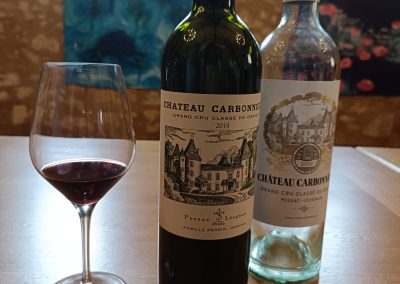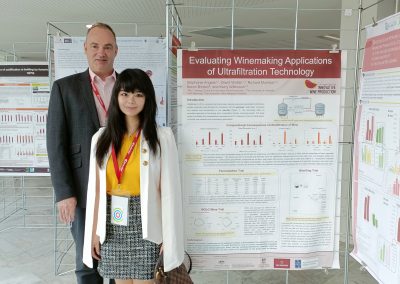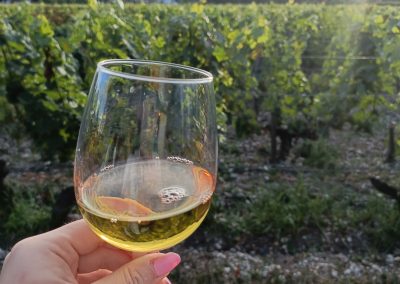By Stephanie Angela
The Oeno Macrowine 2023 is the 12th International Symposium of Oenology of Bordeaux, held by the Oenology Research Unit of the Institute of Vine and Wine Sciences from Universite de Bordeaux.
The primary focus of this conference is centered on comprehending the composition, development, functions, and physicochemical interplay of macromolecules present in grapes, vines, and wine. Subsequently, the scope was broadened to encompass secondary metabolites in grapes, vines, and wine.
The overall objective of the conference is to facilitate collaboration among scientists and foster international networks with the aim of bolstering the wine industry’s sustainability and competitiveness. This collaboration seeks to enhance the production of superior, greater diversity, and appealing wine products that are safer and healthier, all within the context of challenging climate change conditions. The conference serves as a platform for presenting findings from international collaborative efforts and networks.
My project is about wine technology optimization in phenolic and macromolecule management, which fits the objective and focus of the conference. I really appreciate the opportunity to share my project with the academia and wine industry community from all over the world (e.g., Greece, Spain, USA, France, and many more).
The conference was held from the 9th – 13th of July 2023, consisting of well-planned presentations, poster sessions, field trips to a few Châteaux / La Cité du Vin (Wine world museum), cocktail night, and gala networking dinner. During the conference, I made many connections and had a great time networking with experts in the same field and connecting with PhD colleagues from the ISVV oenology department. The conference addressed various aspects of winemaking and viticulture; scientific and industrial hypotheses from all over the world with their differences in law/regulation, soil condition, cultivars, climates, and wine varietal.

The visit and wine tasting to the Châteaux was limited to 50 people; however, Isara and I managed to secure the place to visit Château Carbonnieux, famously known for their gravelly soil, with its excellent drainage, mineral content, and ability to stress the vines slightly; creating an ideal environment for grape cultivation. The soil’s contribution to the overall terroir of the vineyard helps produce wines that are highly regarded for their quality, complexity, and unique expression of the Pessac-Léognan appellation in Bordeaux.
Apart from Isara and myself, attending the conference from the University of Adelaide included Associate Professor Sue Bastian, Laura Mezei, and fellow researchers from AWRI, Markus Herderich and Alicia Joaquin.
Additionally, I had the opportunity to encounter Dr. Maria Pilar Saenz Navajas, a visiting researcher at the University of Adelaide, and Dr. Maria Tiziana Lizanti, who is involved in the NOLO wine project relevant to my own research. Notably, both Dr. Saenz Navajas and Dr. Lizanti have professional connections with Associate Professor David Jeffery.
Finally, I would like to express my appreciation to the ARC Innovating Wine Production Training Centre, University of Adelaide, and all of the related industry partners for the amazing opportunity to participate in the OenoMacrowine Conference 2023. It is a remarkable and unparalleled experience!
Stephanie Angela is a PhD student in the Australian Research Council Training Centre for Innovative Wine Production at The University of Adelaide.



